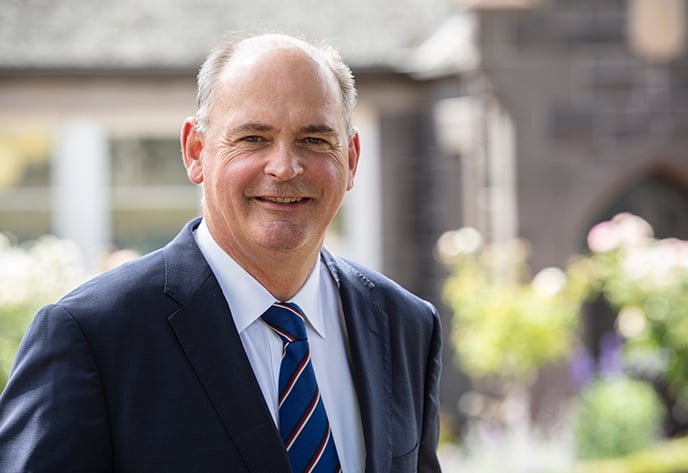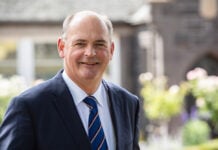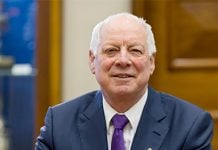We want our students to be self-assured people who are able to have a positive impact on the world around them during their time at School and beyond. To do this, they need to have the courage and ability to clearly communicate their ideas and concerns, to present reasoned arguments in a respectful manner, and to confidently project their true selves regardless of the circumstances.
However, this doesn’t come naturally to everyone, therefore proactively and overtly teaching students when and how to ‘use their voice’ is an essential part of the educational program at Melbourne Grammar School.
From encouraging our youngest students to say hello to their peers and teachers at the start of the day and engage in conversation, through to formal programs such as debating, as well as hundreds of micro and macro interactions which all foster the development of the student voice occur across our campuses every day.
At Melbourne Grammar, we understand that your voice is not always expressed verbally. Written pieces, dramatic and musical performances, artworks and more are all valid demonstrations of the student voice.
In general, students who are active participants in their own education tend to learn more, more quickly. This is why, for example, project work where students have the capacity to choose the focus of their studies is important. We share student work and pieces of writing with others to build their belief in their own communication abilities. And beyond that, direct and regular conversations with teachers about individual learning progress happens across all year levels.
A list of articles written by students for this edition of Grammar News is provided below.
Most people serve as part of a team every day whether as a member of a family, within the classroom or the workplace or in social settings where people share a common interest. Learning how to build strong and effective relationships, negotiate and give constructive advice or feedback is part of this function, so developing good team practices is also something we focus on at the School.
We also want all students to fully appreciate that their opinions, perspectives and knowledge have value. Posing age-appropriate questions which push students to think broadly and consider multiple viewpoints before presenting their own views is a regular occurrence in even our youngest classrooms. We try to show students how to participate in discussions about topical and sensitive matters in a respectful way, and to express their opinions with clarity and courage.
There are mechanisms to support these actions, such as student committees, throughout the School which become increasingly issues-based as students mature. This year, the Across Boundaries and the Find Your Voice Committees were introduced in the Senior School. The former focuses on celebrating diversity and identifying ways we can fight harder against discrimination and exclusion. The latter seeks to assist all students to understand existing pathways for mental health support, and to identify new ones.
You can read more about the new Senior School Across the Boundaries Committee here.
2023 Captain of School, Daniel Cash, recently penned a thoughtful opinion piece refuting the claims of the Presbyterian Church of Australia that, in part, gay students are not suitable for school leadership positions as they do not ‘model Christian living’. It was published in The Age newspaper and reverberated across the country. We estimate that his reach was in the millions, and virtually all commentary made in response to the article through the newspaper, on social media and to the School was extremely positive. I am sure this action will influence the stance on this important matter and Daniel is to be commended for his bravery and eloquence.
You can hear Daniel speak about the culture of respectful dialogue within the School here.
We try to ensure that students use their voice to care for themselves and for others. They need to know that simply asking a person how they are feeling or, indeed, expressing their own feelings is essential for good mental health.
In my view, perhaps the most important reason why we need to ensure students know when and how to use their voice effectively is so that, on the darkest moment of their darkest day, no matter when that occurs in their lives, they will use their voice to ask for help.
Finally, we expect our students to stand up for themselves and for others, and to take action when they see injustice, unfairness, or unkindness. This is fundamental to our School values and culture.
Philip Grutzner
Headmaster
You will find several examples of the student writing in this edition of Grammar News:
- Year 6 students, Will Day and Julia Lin, talk about their learnings on a School camp here.
- A core strategy to support the transition to Year 7 is outlined by Year 7 student, Lachlan Mar, here.
- Haidar Bashir, Year 11, explains how Melbourne Grammar School is contributing to revitalising pollination populations in Melbourne here.
- Marcus Allen, Year 12, and Thomas Amarasekara, Year 10, have crafted stories about the success of Old Melburnians 100 years in the past here and here.
In addition:



